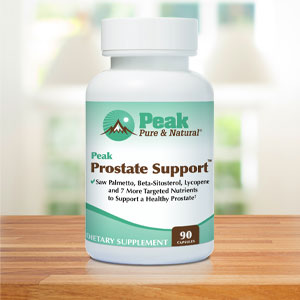Get Easy Health Digest™ in your inbox and don’t miss a thing when you subscribe today. Plus, get the free bonus report, Mother Nature’s Tips, Tricks and Remedies for Cholesterol, Blood Pressure & Blood Sugar as my way of saying welcome to the community!
The bedtime activity for better blood flow and heart health

If you’re not a deep sleeper, your circulation may be subpar.
It’s a known fact that sleeping poorly can damage your heart.
Men who don’t sleep enough hours to achieve a deep, restful sleep could be doubling their risk for heart attack and stroke.
And women who sleep poorly are at higher risk for hypertension.
Now, researchers have dug a little deeper into exactly what happens during deep sleep that offers protection for our hearts…
They’ve found that if you’re not a deep sleeper, your circulation may be subpar. And how certain brain waves can be harnessed to improve both problems…
Deep sleep increases blood flow
Researchers at the University of Zurich have demonstrated that increased deep sleep prompted by pink noise improves cardiac function and may be helpful in disease treatment and especially preventive medicine.
The study involved 18 healthy men aged 30 to 57, who spent three non-consecutive nights in a sleep laboratory.
When their brain activity indicated that they had entered deep sleep, a computer played a series of brief tones at a pink noise frequency. This targeted stimulation during deep sleep causes the heart — in particular the left ventricle — to contract and relax more vigorously.
When the heart contracts during deep sleep, the left ventricle contracts and relaxes vigorously, which means it pumps blood into the circulatory system and then draws it out again more efficiently.
Related: Nitric oxide: The pathway to better blood vessels, blood flow and blood pressure
The left ventricle is squeezed and wrung out like a wet sponge. The more immediate and more powerful this wringing action, the more blood enters the circulation and the less remains in the heart. This increases blood flow, which has a positive effect on the cardiovascular system.
This experimental setup allowed the researchers to directly monitor whether the sound simulation enhanced deep sleep and whether it influenced the subjects’ heart rate and blood pressure. “During stimulation, we clearly see an increase in slow waves, as well as a response from the cardiovascular system that is reminiscent of cardiovascular pulsation,” says lead author Stephanie Huwiler
This is the first time anyone has shown that an increase in brain waves during deep sleep (slow waves) improves cardiac function. This is important not only to your heart but to your kidneys, brain and other organs.
How to sleep more deeply… naturally
So now you know just how important deep sleep is to your heart health — literally helping your blood circulate through your body as you sleep.
And the research also provided a big clue on how to achieve it — using pink noise.
Pink noise is a mix of high and low frequencies that sound more natural than white noise, something you’re probably more familiar with. White noise sounds more like static and provides a steady sound that may drown out other noises or disruptions that could otherwise awaken a sleeper.
According to the Sleep Foundation, pink noise is more prevalent in nature sounds — like falling rain, wind rustling through trees or waves at the shoreline.
They also report previous studies show pink noise enhances memory, especially when played in synchrony with specific types of brain waves — most likely the same slow waves referenced in the Zurich study.
You can sleep to the sounds of pink noise by purchasing a pink noise machine or using a smartphone app, like Spotify. After a quick search, I found several pink noise playlists were available.
Now, the quickest way to interfere with slow-wave activity and deep sleep is to eat junk food.
According to research I shared a few months back, less slow-wave activity was exhibited during deep sleep when participants had eaten junk food, compared with consumption of healthier food. This adverse effect on slow wave activity also lasted into a second night.
Some basic sleep hygiene can be helpful too. Don’t forget these tips:
- Go to bed and wake up at the same time each day, even on weekends.
- No sugar, caffeine or drinks (to avoid bathroom trips) after 6 pm.
- No exercise or vigorous physical activity after 7 pm (or with 2 hours of your projected bedtime).
Editor’s note: There are perfectly safe and natural ways to decrease your risk of blood clots including the 25-cent vitamin, the nutrient that acts as a natural blood thinner and the powerful herb that helps clear plaque. To discover these and other secrets of long-lived hearts, click here for Hushed Up Natural Heart Cures and Common Misconceptions of Popular Heart Treatments!
Sources:
Increased deep sleep benefits your heart — Science Daily
Auditory stimulation of sleep slow waves enhances left ventricular function in humans — European Heart Journal














